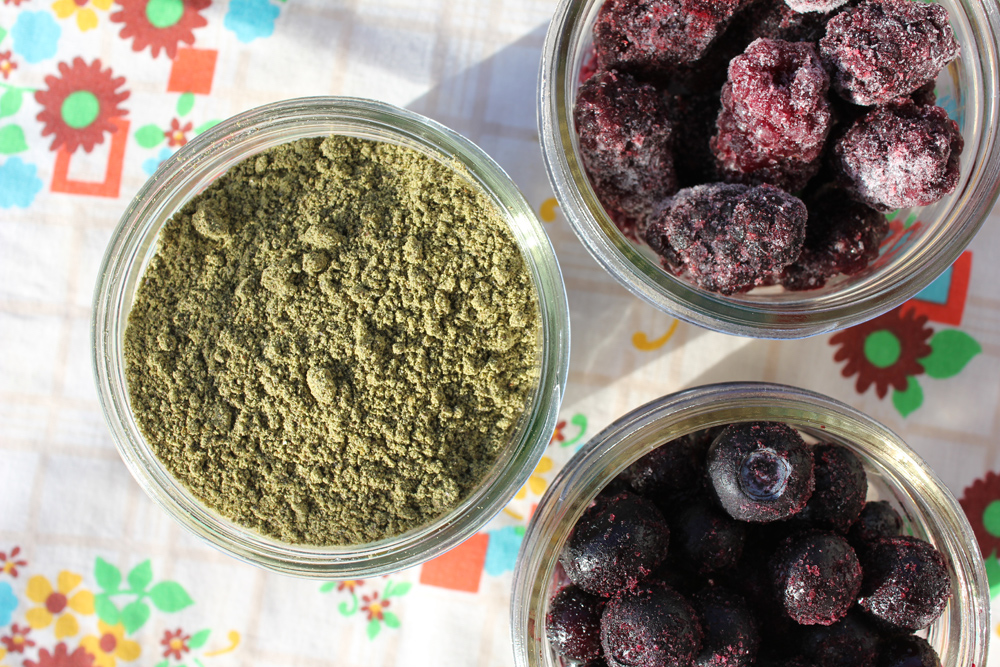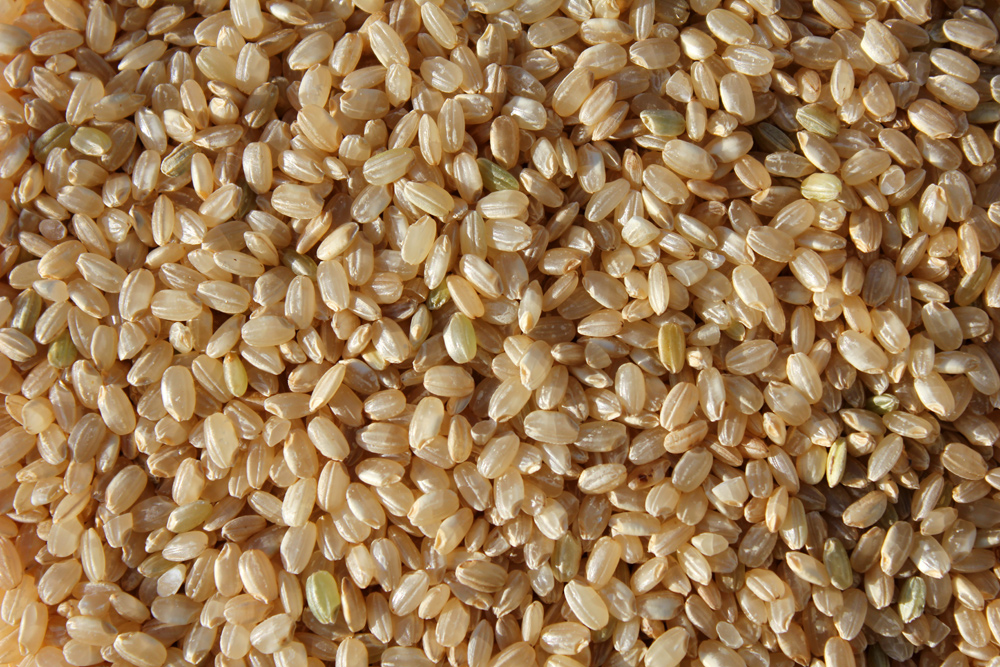Protein Powder: 7 Tips to Find the Best One
if you eat protein powders, this is a must read

When my daughter was 12 months old, we couldn’t keep weight on her. She fell below the 5th percentile and we needed to start packing calories into her foods. Rice protein powder was one of the foods I considered to amp up her protein intake in an easy, slurp it down kind of way. Now that I know what I know about rice protein powder, I’m not so sure I’d give it to an infant, even if it came from a quality company.
Because there’s no federal oversight on protein powders, you really need to know how to find the best one.
1. Make sure it’s digestible.
Almost all protein powders are easily digested, but when compared to each other, results vary. I wish there was one research article that compared the digestibility of soy, hemp, rice, whey, casein, and pea protein powders using the same testing methods. But no study exists. Digestibility is important because it affects our body’s ability to build muscle. Our bodies need protein to build muscle.
We do know some things though. One study found hemp protein to be about 87% digestible, but according to the Protein Digestibility-Corrected Amino Acid Scores (PDCAAS), it had about a 48% digestibility.1 The PDCAAS also rated soy protein isolate as 92% digestible and casein protein as 100% digestible.1 The digestibility studies I found on pea and rice protein lacked comparisons to other protein sources. However, the research clearly stated high digestibility on account of both proteins, but I think results are weakened when not compared to another protein.3,4
You can also look at digestibility in terms of how fast it’s digested. Whey protein has a rapid digestion rate, making it a digestibility winner. One research study found whey to be more digestible than soy, and soy was found to be more digestible than casein.2
2. Look for one with a complete amino acid profile.
A protein powder’s amino acid profile determines whether or not it’s a complete protein source (amino acids all globbed together are what make a protein). A complete protein has all the essential amino acids. Essential amino acids are the ones that your body can’t make, so you have to get them in your diet. Pea protein powder is the only protein powder to not contain all of the essential amino acids (unless the manufacturer adds them). Although many of the other protein powders are complete proteins, amino acid profiles still vary between sources. For example, hemp protein is higher in arginine than casein, pea, and soy proteins.5 Following consumption, whey protein showed the highest level of essential amino acids in the blood compared to soy or casein proteins.2
3. Investigate how it’s made.
Choose a protein powder that came from an organic protein source and inspect how the protein was grown (whether from a cow or a plant). You also need to know how the protein was isolated from its mother source. Some protein powders, especially non-organic ones, are made using solvents (very toxic chemicals) to separate out the protein. Solvent residues are always left in the product. I saw this concept in the organic chemistry lab when I used a chemical solvent to extract caffeine from black tea. Make sure the manufacturing process is solvent free.
4. Beware of heavy metal contamination.

Rice protein seems to have a predisposition to lead contamination, especially since a lot of rice protein powders come from China. A major source of the world’s lead and cadmium exposure comes from rice.6 In May 2010, Consumer Lab found NutriBiotic’s vanilla flavored rice protein to contain 6 mcg of lead per 15 gram scoop. They also found Metagenics UltraMeal chocolate flavored rice protein to contain 5.9 mcg of lead for a daily serving of 104 grams. In July 2010, Consumer Reports found two Muscle Milk products each contaminated with about 12-13 mcg of lead for 3 servings.
5. Eat as local as possible.
Different countries have different standards. Stick to protein sources that have come from the U.S. or Canada, or investigate a local source if you live overseas. Biotics found high levels of lead in rice protein powder imported from China.
6. Find a quality company.
Protein powders are not regulated by any governmental agency, including the FDA. Find a company that follows the proposed FDA current Good Manufacturing Practices (cGMP) for nutritional supplements. If you don’t know how to find this out, call them and ask. A quality company will also conduct third party testing of all their materials. By finding a good company, you eliminate HUNDREDS of protein powders. It costs money to have better manufacturing practices and third party testing, so the more expensive protein powders are usually the better ones. Metagenics is a quality company I trust, so I was surprised to see the lead contamination in their UltraMeal (but I think the problem is that it utilizes rice protein).
7. Watch out for fillers.
Everyone seems to flock to the hemp protein powder at Trader Joe’s because it’s so cheap, but the label shows that it’s cut with sugar. Other companies aren’t as honest. Due to lack of quality regulations, sneaky companies add fillers to their protein powders and never say so on the label.
If I could have dairy, I would eat whey protein powder from organic, grass-fed cows because it increases glutathione levels in the body (glutathione is a super hero antioxidant, and eating more kale supports this antioxidant system).
With all of these things in mind, my favorite allergy friendly protein powder is hemp protein. Because hemp protein powder is also high in fiber, it serves double duty in helping to balance blood sugar. Hemp has a heart healthy fat profile and its high amounts of arginine may assist immune function.1 I also like that my hemp protein powder was grown and processed in Canada.
This information is condensed in a free downloadable PDF. Feel free to educate your friends, family, and patients with this handout.
References:
1. House JD, Neufeld J, Leson G: Evaluating the quality of protein from hemp seed (Cannabis sativa L.) products through the use of the protein digestibility-corrected amino acid score method. Journal of Agricultural and Food Chemistry. 2010. Volume 58, 11801–11807.
2. Tang JE, Moore DR, Kujbida GW, et al: Ingestion of whey hydrolysate, casein, or soy protein isolate: effects on mixed muscle protein synthesis at rest and following resistance exercise in young men. Journal of Applied Physiology. 9 July 2009. 107:987-992.
3. Wang M, Hettiarachchy NS, Qi M, et al: Preparation and Functional Properties of Rice Bran Protein Isolate. Journal of Agricultural and Food Chemistry. 1999. Volume 47, 411-416.
4. Gausserès N, Mahè S, Benamouzig R: [N]-Labeled pea flour protein nitrogen exhibits good ileal digestibility and postprandial retention in humans. The Journal of Nutrition. 1997. 127:1160-1155.
5. Aukema H, Gauthier J, Roy M, et al: Distinctive effects of plant protein sources on renal disease progression and associated cardiac hypertrophy in experimental kidney disease. Molecular Nutrition & Food Research. 2011. Volume 55, 1044-1051.
6. Shakerian A, Rahimi E, Ahmadi M: Cadmium and lead content in several brands of rice grains (Oryza sativa) in central Iran. Toxicology and Industrial Health. 18 January 2012.
While travelling across US and Canada borders, I recommend this handy tool to convert gas prices in USD per gallon into CAD per liter.
Enjoy More Archerfriendliness
In light of Earth Day yesterday, you may have finally switched out your incandescent lights and replaced them with compact fluorescent lights (CFLs). Or maybe you went "green" a while ago and hav...
If you want easy, this is easy. You don't have to get off your butt, make a kale green smoothie, or stop drinking coffee. Well, maybe you should be doing all that. But if you're going to do at leas...
photo by my LA photography friend, Danae Horst The Wendy's Eating Husband lives for fresh bread. His favorite kind is a simple white baguette, and he likes to smother it with butter or dip it in ba...








aunt lisa
February 20th, 2012 at 5:09 pm
Archer, Addrienne is 14mo. and also under weight 15pounds. How would l go about feeding her the protein powder? William is really skinny too. Does it come in flavors and can l find it in a health food store?
Reply
Dr. Archer
February 20th, 2012 at 7:46 pm
Yes, you can find hemp protein powder in a health food store. It does have a different taste to it, but my daughter and I really like it. Hemp protein powder tastes really good in berry or chocolate smoothies. If your grand kids don’t like the taste of it, you can try hiding its flavor in a smoothie. Nutiva makes flavored hemp shake protein powders: http://nutivahempshake.com/choc.htm.
When my daughter was underweight, we also fed her a lot of avocados and coconut oil (not straight-up, but in food).
Reply
Sally
May 14th, 2013 at 9:05 am
M allergic to hemp and dairy. I used to use nutribiotic all the time. Sun warrior and garden of life are gross. Is the metal issue really a problem? How does this level compare to other foods? Nutribiotic has an explanation on their website that makes it seem “safe” compared to other foods
Reply
Dr. Archer
May 15th, 2013 at 9:34 pm
Hi Sally,
I do think the metal issue is a problem. I’ve been using pea protein recently and I love it! My girls are allergic to hemp as well.
Reply
Dena
November 22nd, 2013 at 6:39 pm
I recently bought rice protein and it has all the right things you mentioned in your article above (i.e. Non gmo, no chemical solvents, complete amino acid profile, etc.) I’m all ready to dive in and there is a sticker that says “this product contains a chemical known by the state of ca to cause birth defects or other reproductive harm”!!! What’s that all about? How do you know protein powders are safe?
Reply
Dr. Archer Atkins
November 24th, 2013 at 11:21 pm
Hi Dena,
If the container said “no chemical solvents” I’m confused on how the protein powder still has a chemical in it that’s not OK’d by the state of CA. If the protein powder is known to have a chemical in it, it’s most likely a chemical solvent. I would not eat that protein powder and I would call the manufacturer for more information. What was the brand of rice protein you bought?
Some people do not consider protein powders “real food”. Your safest best for the most real food based protein powder is organic hemp protein powder.
Reply